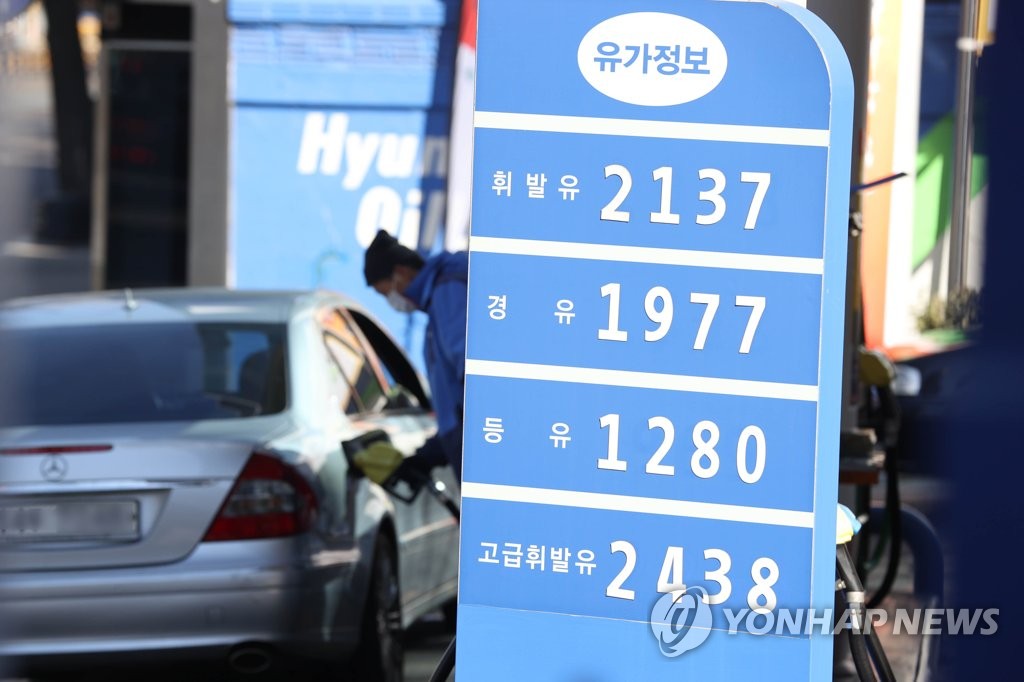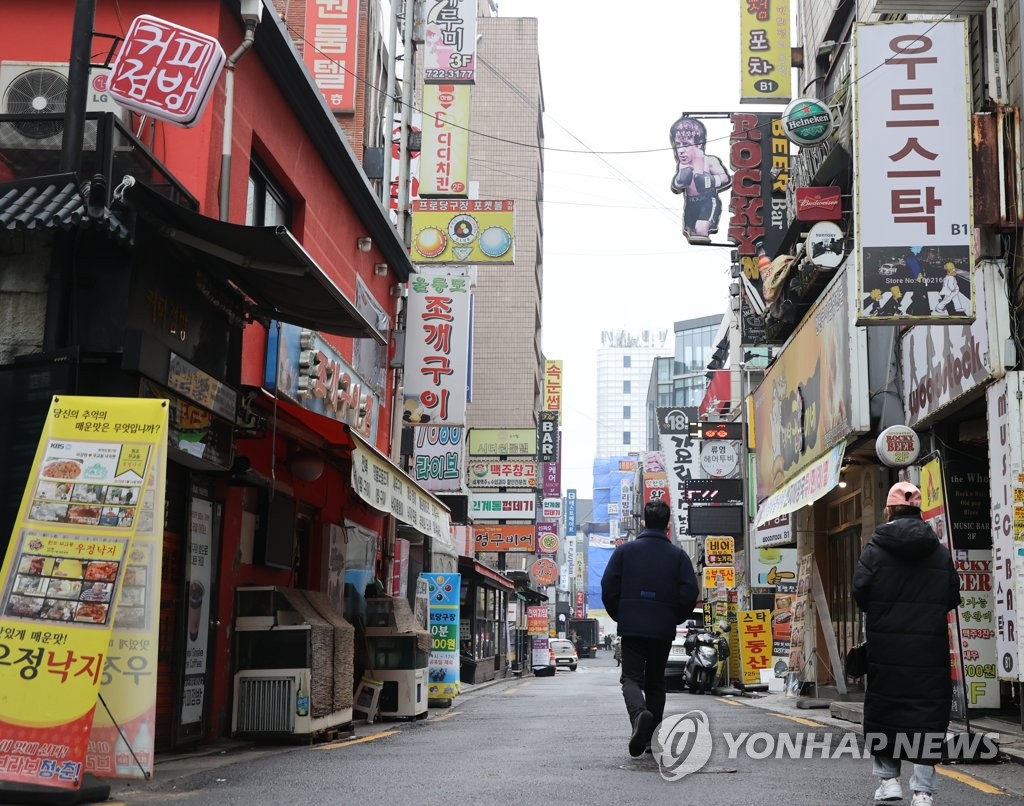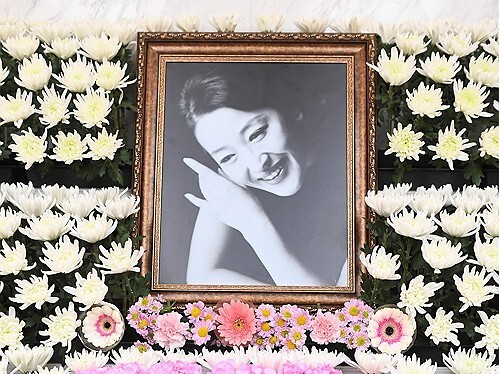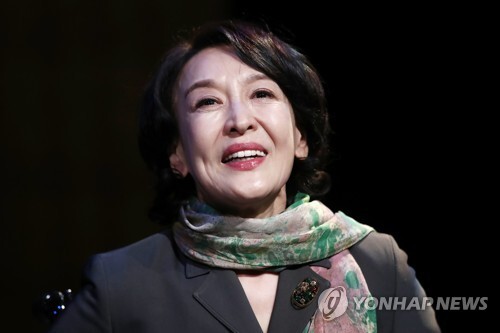 |
| ▲ This photo, taken March 2, 2022, shows gas prices at a filling station in Seoul. (Yonhap) |
 |
| ▲ This photo, taken March 1, 2022, shows a side street full of restaurants in Seoul's central district of Jongno. (Yonhap) |
(LEAD) consumer prices-February
(LEAD) Inflation growth hits over 3 pct for 5th month in Feb. amid soaring oil prices
(ATTN: UPDATES with more details throughout)
By Kim Soo-yeon
SEOUL, March 4 (Yonhap) -- South Korea's consumer prices grew more than 3 percent for the fifth straight month in February as energy costs spiked amid the Ukraine crisis, data showed Friday.
The consumer prices rose 3.7 percent on-year last month, compared with a 3.6 percent on-year gain in January, according to the data compiled by Statistics Korea.
The country's consumer inflation has grown more than 3 percent since October last year. Inflation growth stayed above 2 percent -- the central bank's inflation target over the medium term -- for the 11th consecutive month.
The statistics agency said inflation growth continued to stay in the 3 percent range, led by high prices of petroleum products, processed foods and personal services.
Oil prices surged on tight supplies and tensions over Russia's invasion of Ukraine, putting upward pressure on consumer inflation.
Dubai crude, South Korea's benchmark, came to US$110.05 per barrel Wednesday, up from $77.12 at the end of last year. South Korea depends mainly on imports for its energy needs.
The Bank of Korea (BOK) sharply revised up its 2022 inflation growth outlook to 3.1 percent from its earlier estimate of 2 percent. The government's inflation forecast stands at 2.2 percent for this year.
Core inflation, which excludes volatile food and oil prices, advanced 2.9 percent on-year last month, the fastest gain since June 2009.
Another gauge of core inflation, which excludes prices of agricultural and petroleum products, rose 3.2 percent on-year, the fastest climb since December 2011.
Prices of petroleum products jumped 19.4 percent on-year in February, accelerating from a 16.4 percent rise in January, due to surging energy costs.
Service prices gained 3.1 percent as economic activity increased amid the vaccine rollout and the economic rebound. The price of dining out rose 6.2 percent on-year, the sharpest gain since December 2008.
Prices of agricultural, livestock and fisheries products rose 1.6 percent on-year, slowing from a 6.3 percent increase in January. In recent months, sharp gains in prices of farm products were the main cause for high inflationary pressure.
Prices of daily necessities -- 141 items closely related to people's daily lives, such as food, clothing and housing -- climbed 4.1 percent on-year in February.
Earlier in the day, the government decided to extend fuel tax cuts by three months until the end of July in a bid to help ease inflationary pressure.
In November last year, the government cut fuel taxes by a record 20 percent due to high energy costs. The measures will be in effect until end-April.
Finance Minister Hong Nam-ki said the government will consider further lowering fuel tax cuts if oil prices sharply rise.
South Korea is closely watching the development of the Ukraine crisis on concerns that the geopolitical risk could disrupt energy supplies and imports of raw materials.
The BOK froze the policy rate at 1.25 percent last month amid concerns that the upsurge in COVID-19 cases and the Ukraine crisis could undercut economic recovery momentum.
But the BOK is widely expected to further hike the key interest rate in the coming months to tame inflation. The BOK raised the base rate by a quarter percentage point in January, marking the third of its kind since August last year.
(END)
(C) Yonhap News Agency. All Rights Reserved























